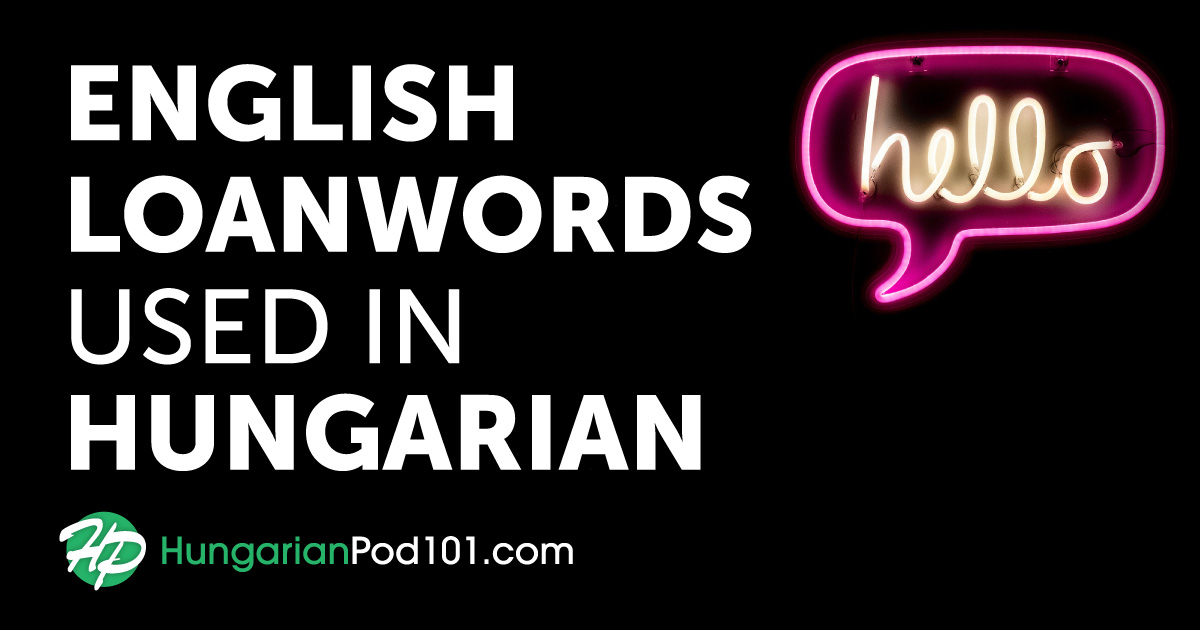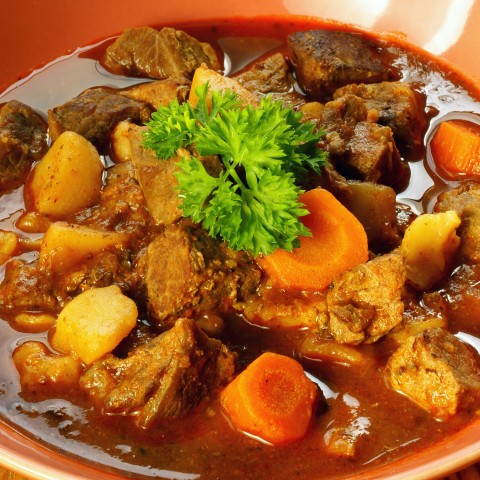
Over the years, globalization has made it more feasible than ever for countries all over the world to connect with each other. This interconnection allows different cultures and languages to influence each other, and major languages (such as English) have left an impression on countless other world languages. Nowadays, it’s increasingly common for languages to adopt entire English words and phrases.
There are quite a few English words in the Hungarian language, classified as either loanwords or Hunglish.
- Loanwords are words that have been integrated into the language with their original English meaning intact.
- Hunglish refers to English words that have entered the Hungarian language with different meanings or nuances.
And it’s not a one-way road! English has also taken foreign words from other languages, and you can find a few Hungarian words in English, too.
In this article, we’re going to show you how Hunglish works, as well as which words English and Hungarian have exchanged among themselves over the years.
Let’s get started.
 Table of Contents
Table of Contents
- Introduction to Hunglish
- Hunglish Examples
- English Words in Hungarian
- How to Say These Names in Hungarian
- English Words Derived From Hungarian
- English Words Derived From Other Languages
- How HungarianPod101.com Can Help You Learn More Hungarian
Introduction to Hunglish
As the name suggests, ‘Hunglish’ refers to the mixing of Hungarian and English by native Hungarian speakers. While Hunglish normally has to do with incorporating English words or phrases into the language, it can also refer to the use of grammatically incorrect Hungarian sentences due to English influence. This phenomenon has been around for quite some time, but has been most prominent in the past five to ten years.
There are two types of Hunglish:
1. English words and phrases officially implemented into Hungarian vocabulary.
2. English words and phrases unofficially implemented into Hungarian vocabulary.
A good example of the latter is when Hungarians insert English expressions or words into the middle of a Hungarian sentence.
Though more and more Hungarians—especially the younger generations—speak English to some extent, the language is not extremely popular in Hungary. Because so few people speak English here, most Hungarians do not have much exposure to the language and tend to make grammatical mistakes when they do use it. Whenever they’re unsure about English grammar, they’re prone to rely on the grammar of their mother tongue.
You can see some examples of this in the next section.

Hunglish Examples
Hunglish can refer to any type of linguistic interference that occurs between Hungarian and English. While this is most commonly seen in vocabulary exchanges (loanwords), the two languages also influence each other’s grammar.
Earlier, we mentioned that many Hungarians make grammar-related mistakes when speaking English. Here are a few examples of what we mean:
| English Sentence | Hungarian Version | Hungarian Translation | Explanation |
| His house is near the church. | His house is near to the church. | A háza közel van a templomhoz. | In Hungarian, something is close to something. Since “close” and “near” have the same meaning, Hungarians tend to use the expressions “to be close to something” and “to be near something” interchangeably. For this reason, they often apply the word “to” after “near.” |
| I feel good. | I feel myself good. | Jól érzem magam. | Hungarians use reflexive pronouns when speaking about how they are feeling. Without magam, the Hungarian sentence would mean something like: “I feel that something is good.” (Jót érzek.) |
| My name is Peter. | My name Peter. | A nevem Péter. | Hungarian does not use auxiliary verbs, such as “to be.” For this reason, Hungarians tend to leave them out of English sentences, too. |
| I was eating when the bell rang. | I ate when the bell rang. | Éppen ettem, amikor megszólalt a csengő. | English verb tenses pose quite a challenge for Hungarians, as Hungarian only has three verb tenses (easily memorized and formed), opposed to the twelve tenses English has (most of which seem very similar to each other to the average Hungarian). |
| Respect needs to be earned. | The respect needs to be earned. | A tiszteletet ki kell érdemelni. | Hungarians tend to overuse the definite article, using it even when it’s not necessary. Again, this is based on their own grammar. As you can see here, the Hungarian sentence starts with a definite article, so they assume it is needed in the English sentence too. |

English Words in Hungarian
Because English loanwords in Hungarian are borrowed, they do not undergo any significant changes in spelling, pronunciation, or meaning. They are more or less written and pronounced—with a slight Hungarian accent, perhaps—like they are in English.
Let’s see some popular English words in Hungarian, shall we?
| Borrowed English Word | Hunglish Version | Original Hungarian Word |
| mobile (phone) | mobil(telefon) | rádiótelefon |
| telephone | telefon | – |
| computer | komputer | számítógép |
| (computer) monitor | monitor | képernyő |
| internet | internet | világháló |
| TV (as tee-vee) | tévé | televízió |
| image | imidzs | arculat |
| hello | heló | szia/sziasztok |
| teenager | tinédzser | serdülő, kamasz |
| trendy | trendi | divatos |
It’s important to add that there are also plenty of so-called “false friends.” These are Hungarian words that are spelled very similarly to an English word but mean something completely different.
| Hungarian Word | Its Hungarian Meaning | Its English False Friend |
| akció | on sale | action |
| farmer | jeans | farmer |
| novella | short story | novel |
| masszív | tough; durable | massive |
| prémium | work bonus | premium |
| gimnázium | high school | gymnasium |
| recept | recipe | receipt |
| szmoking | tuxedo | smoking |
| konkrét | factual | concrete |
| szolid | low-key | solid |

How to Say These Names in Hungarian
Some of the most famous English words in Hungarian are celebrity and franchise names. The pronunciation for these words doesn’t normally change much, but may be spoken with a Hungarian accent. In some cases, Hungarians have created their own version of the name instead of adopting the English one.
Let’s see some examples of these common English words in the Hungarian language:
| English Version | Hungarian Version |
| McDonald’s | Meki (This is a shortened version; Hungarians say “McDonald’s” too, with a Hungarian accent.) |
| Star Wars | Csillagok háborúja |
| Catherine, Duchess of Cambridge | Katalin cambridge-i hercegné |
| Prince Harry, Duke of Sussex | Henrik sussexi herceg |
| Winnie the Pooh | Micimackó |

English Words Derived From Hungarian
Hungarian has also had quite an influence on the English language, lending it several words which have become integrated into the language over time.
The most common Hungarian words in English are:
| Original Hungarian Word | English Version | Meaning of the Word |
| gulyás | goulash | traditional Hungarian soup with lots of vegetables |
| halászlé | Fisherman’s Soup | traditional Hungarian Christmas soup |
| huszár | hussar | light cavalry soldier |
| csárdás | czardas | Hungarian folk dance |
| Dobos torta | Dobos torte or Dobosh | Hungarian cake named after József Dobos |
| icipici | itsy-bitsy | teeny-tiny |
| csákó | tsako | peaked cap |
| kocsi | coach | horse-drawn wagon |
| tokaji | tokay | famous Hungarian white wine, tokaji aszú |
| vizsla | vizla | Hungarian hunting-dog breed |
Knowing these basic Hungarian words in English, could you order your dinner in a Hungarian restaurant?

English Words Derived From Other Languages
You’ve learned a lot so far: what Hunglish looks like, how English has influenced Hungarian, and the most common Hungarian words in the English language. Now it’s time for a little fun before we wrap up!
Here are some English words that derive from other languages. How many of these did you know already?
| English Word | Language Origin |
| entrepreneur, utensil | French |
| delicatessen, wanderlust | German |
| guerilla, cigar | Spanish |
| tofu, ketchup | Chinese |
| paparazzi, cartoon | Italian |
How HungarianPod101.com Can Help You Learn More Hungarian
We hope you enjoyed reading this article, and that you now feel more confident about continuing your Hungarian studies. While Hungarian is not the easiest language to learn, its growing number of English loanwords and other English influences can help it seem less daunting. Plus, as globalization continues, the list of English words in Hungarian will surely grow with time.
How many of these words were you surprised to find on our list? Let us know in the comments, and feel free to reach out with any questions!
Are you interested in learning more about the Hungarian language in an easily accessible manner? Then join the HungarianPod101 family. With us, you’ll get unlimited access to many articles, vocabulary lists, and video and audio lessons that will make studying way easier.
Another benefit of becoming a member is the strong sense of community we have to offer. Next time you encounter a bump in your language learning, there will always be someone there to help—whether it’s one of our native Hungarian teachers or a fellow language learner. With us, you’ll never be alone on your exciting Hungarian learning journey.










